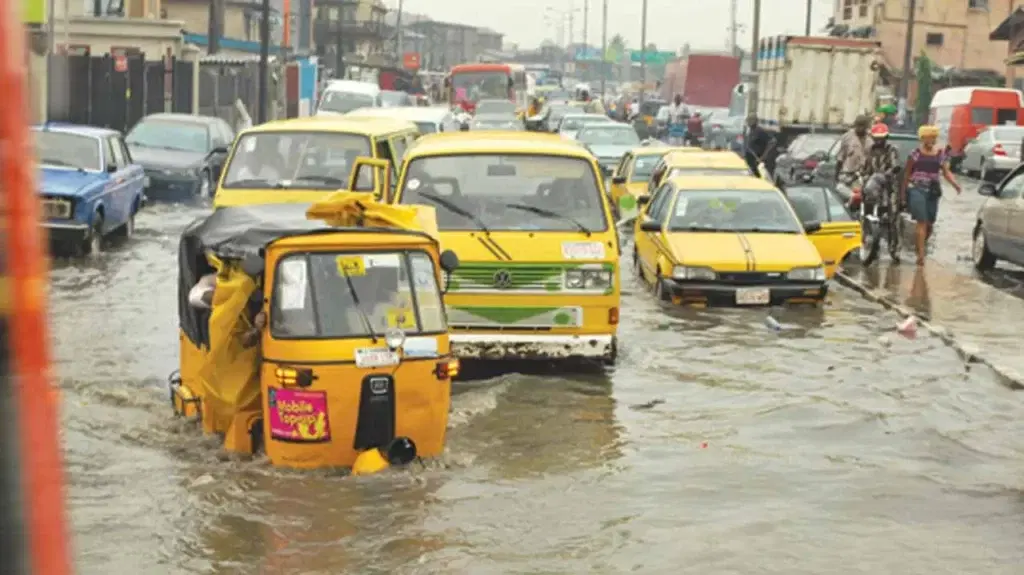..Poor Drainage and Waste Disposal Worsen the Crisis
As torrential rains sweep across Nigeria, major cities from Lagos to Port Harcourt are grappling with another kind of disaster urban flooding. Blocked drainage channels, unregulated urban development, and poor waste management have combined to turn streets into rivers.
In Lagos, commuters are stranded daily as floodwaters submerge major highways like the Lekki-Epe Expressway and Oshodi-Apapa Road. In Port Harcourt, entire neighborhoods go underwater within hours of heavy downpours.
Experts argue that flooding in Nigerian cities is less about rainfall and more about poor urban planning. “Our drainage systems are either outdated or completely blocked by refuse. Even with moderate rainfall, cities get flooded,” said Tunde Ogundipe, a civil engineer.
The Lagos State government has invested in drainage expansion, but rapid urbanization has outpaced development. Informal settlements built along waterways make flooding inevitable, with low-income residents suffering the most.
Economic losses are mounting. A 2024 report by the World Bank estimated that urban flooding costs Lagos nearly $4 billion annually in damages, lost productivity, and healthcare expenses.
Businesses also take the hit. Shop owners in Balogun Market say they lose millions of naira in goods each rainy season. Transportation companies complain of damaged vehicles and disrupted logistics.
Public health concerns are also rising. Pools of stagnant water have become breeding grounds for mosquitoes, contributing to spikes in malaria cases. In communities with poor sanitation, outbreaks of cholera are common after floods.
Experts recommend integrated flood management, stricter enforcement of building regulations, and a massive overhaul of drainage networks. Citizens are also urged to stop dumping refuse in waterways.
As rains intensify, urban residents brace for more chaos, underscoring the urgent need for Nigeria to rethink how its cities grow in a changing climate.





